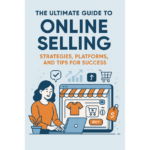The complex world of medicine can be daunting for aspiring doctors and even challenging for seasoned professionals. Staying updated with the latest research, understanding advanced technology, and connecting with experts are vital steps to excelling in this field. Resources such as medical journals, digital platforms, professional associations, and continuing education opportunities are indispensable. In this article, we’ll delve into these valuable tools that can enhance your medical career and patient care practices.
Navigating Medical Journals: Essential Literature for Aspiring Doctors
Medical journals are essential for medical professionals to stay updated on the latest research and clinical studies. They provide insights into emerging diseases, treatments, and medical trends. The sheer volume of journals can be overwhelming, so it’s best to focus on reputable publications and consider summaries or reviews.
Digital access to journals’ archives can simplify the learning process. Medical journals also play a crucial role in education, encouraging critical thinking, evidence-based practice, and interest in niche areas. Engaging with the content beyond reading, such as journal clubs, letters to the editor, or peer reviewing, can further develop analytical skills for informed patient care.
Harnessing Digital Platforms: Online Courses and Webinars for Medical Professionals
The digital revolution has transformed medical education, with online courses and webinars becoming popular for their flexibility and accessibility. E-learning platforms, including MOOCs, offer diverse resources like video lectures and quizzes, accommodating different learning styles. This interactive format helps professionals stay updated while balancing clinical commitments.
Webinars, featuring experts on the latest treatments and healthcare policies, provide valuable networking opportunities and real-time learning. Platforms like Medset UK offer specialized tools and resources, enhancing education in specific medical fields, along with certificates and continuing education credits for career advancement.
Medical Networking and Mentorship: Joining Professional Associations and Societies
Professional associations in the medical field provide a platform for collaboration and mentorship, fostering an exchange of ideas and best practices. These associations, whether national or international, offer access to exclusive educational resources, subscription to specialty journals, and opportunities to participate in committees or study groups. Mentorship programs for clinicians within these societies can shape early careers, with experienced practitioners guiding newcomers on clinical challenges and career development.
Attending conferences and annual meetings organized by these associations is another significant perk, providing networking opportunities, collaboration, and job opportunities. Volunteering on boards or committees also contributes to the profession and heightens visibility within the medical community. Leadership roles in these societies can propel careers forward and enhance one’s reputation among peers.
Staying Ahead with Medical Technology: Tools and Apps for Healthcare Practitioners
Technological advancements have revolutionized healthcare by providing numerous tools and applications, streamlining workflows, enhancing patient care, and providing new ways of accessing medical information. Medical apps, such as medical calculators and drug reference guides, have gained popularity among healthcare professionals, allowing for quick consultations and improving clinical decision-making accuracy.
Virtual reality and augmented reality are also being integrated into medical training and practice, offering immersive learning experiences and potentially revolutionizing surgical training and patient care planning. Professionals should stay updated with these technologies by attending tech-specific medical conferences or subscribing to tech-centered medical publications. The ability to adapt to and adopt new technologies is becoming a distinguishing factor in healthcare.
Research Opportunities and Continuing Education: Conferences and Workshops for Clinical Expertise
Medical proficiency is rooted in research and continuous learning, which enhances critical thinking and problem-solving skills. Opportunities for research include university-hospital collaborations and internships with reputable institutions. Workshops and conferences are crucial for maintaining clinical excellence, providing hands-on experience and innovation on diagnostics, treatment approaches, and patient care strategies.
Continuing medical education (CME) is a requirement for healthcare professionals to stay licensed and stay updated with the ever-evolving medical knowledge base. Organizations and universities host CME courses and seminars to align with current standards and new breakthroughs. Beyond formal education, conferences and workshops facilitate the exchange of cultural competencies and global health perspectives, drawing international audiences and enriching understanding of medicine on a global scale.
Overall, the pursuit of excellence in the medical field is a continual journey, one that is enriched by a wealth of resources. From perusing medical journals and leveraging digital learning platforms to networking through professional societies and staying current with medical technology, these tools empower healthcare providers. They enable practitioners to provide the highest quality of care while fostering personal and professional growth throughout their careers.
















